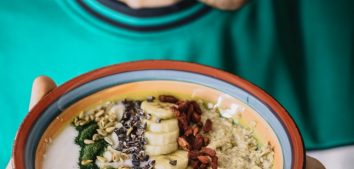
Nutri-Epigenetics: the Way to Longevity?
Longevity has always fascinated people. As science progresses, we discover more and more secrets that could help us live a long and healthy life. One of the latest areas of research that is gaining more and more attention is nutri-epigenetics: a field that deals with how food affects gene activity and longevity. Sounds mysterious…? Make sure you read below all about the latest discoveries in this subject.
What is Nutri-Epigenetics?
Nutri-epigenetics is the key to longevity through healthy eating! This field studies the interaction between our eating habits and gene expression. This means that what we eat can influence how our genes are activated or deactivated. Findings in this field suggest that our diet may affect the body’s ability to defend against disease, the aging process and, potentially, longevity.
Nutri-Epigenetics – How Does It Work?
Nutri-Epigenetics focuses on understanding how nutrients influence epigenetic modifications. These changes include DNA methylation (adding a methyl group to DNA molecules) and histone modifications (changes to the structure of the proteins around which the DNA is wrapped). By influencing epigenetic modifications, nutrients can regulate which genes are activated and which are deactivated. Amazing, right? This has a significant impact on cellular functions, immune responses, and aging-related processes.
Nutrients and Genes
By influencing genes associated with aging, foods can affect the body’s ability to stay in good shape for longer. Some nutrients found in food can affect our DNA. For example, the widely discussed antioxidants contained in fruits and vegetables can help protect our cells against damage, which is crucial for maintaining long-term health. Similarly, some fatty acids, such as omega-3, which you will find, among others, in fish, are associated with beneficial effects on brain function and heart health.
What to Eat to Live a Long and Healthy Life?
- Berries: raspberries, blueberries, currants, blueberries, strawberries – include these fruits in your diet, not only due to the high content of dietary fiber, but also antioxidants. They have a very significant impact on protecting our cells against damage.
- Leafy green vegetables: spinach, arugula, corn salad, parsley. The folates contained in them lower the epigenetic age (i.e. “turn back” the epigenetic clock).
- Fish rich in omega-3 fatty acids: salmon, mackerel, trout, herring. They have anti-inflammatory properties, so use them at least 2-3 times a week. They have a great effect on the functioning of the heart and brain.
- Nuts and seeds: walnuts, almonds, pumpkin seeds, chia seeds. They help maintain proper cholesterol levels and heart function, so it is worth consuming them every day.
- Anti-inflammatory spices: ginger, turmeric, cinnamon, cloves, nutmeg, oregano, sage. Adding them to your daily meals can help reduce inflammation in the body.
Daily Rituals Affect Longevity
There are a few simple rules that you can introduce into your eating rituals. First, focus on dietary diversity! Eating a variety of plant and animal products provides a number of nutrients that are beneficial to the epigenome. Another rule, heard many times, but very important is: avoiding processed foods, some chemical substances added to food may have an unfavorable effect on epigenetic modifications. And the last one – regular mealtimes. Providing nutrients by eating meals at regular intervals (approximately every 3-4 hours) may affect the stability of the epigenome.
If you have no idea how to create new, diverse recipes, I encourage you to look for inspiration in my Diet & Training by Ann application (HERE) or use ready-made meals in SuperMenu (HERE) 🙂
Summary
Nutri-epigenetics opens new doors to understanding how food affects our health and longevity. By consciously choosing healthy food, we can have a positive impact on our genes and aging processes. Of course, a healthy diet is just one of many components of a healthy lifestyle, but it can be a key element in striving for longevity and well-being over the years.
Bibliography:
- Barrero MJ, Cejas P, Long HW, Ramirez de Molina A. Nutritional Epigenetics in Cancer. Adv Nutr. 2022 Oct 2;13(5):1748-1761.
- Kalea AZ, Drosatos K, Buxton JL. Nutriepigenetics and cardiovascular disease. Curr Opin Clin Nutr Metab Care. 2018 Jul;21(4):252-259.
- Kalemba-Drożdż M. Nutriepigenetyka. Perspektywy i ograniczenia, Medycyna Ogólna i Nauki o Zdrowiu, 2019, 25, 2, 70-74.
- Sato T, Sassone-Corsi P. Nutrition, metabolism, and epigenetics: pathways of circadian reprogramming. EMBO Rep. 2022 May 4;23(5):e52412.










Comments No Comments
Join the discussion…